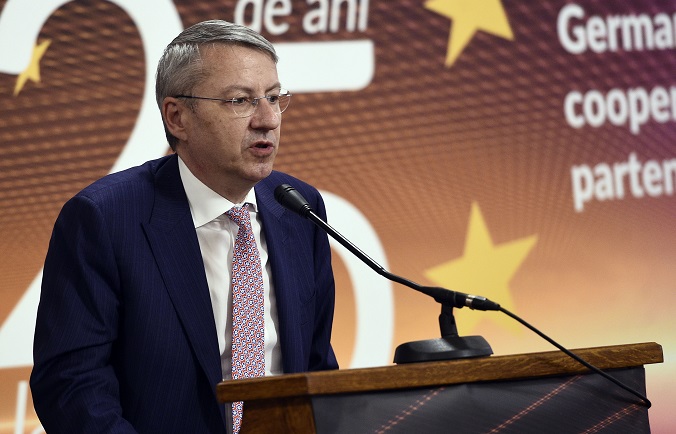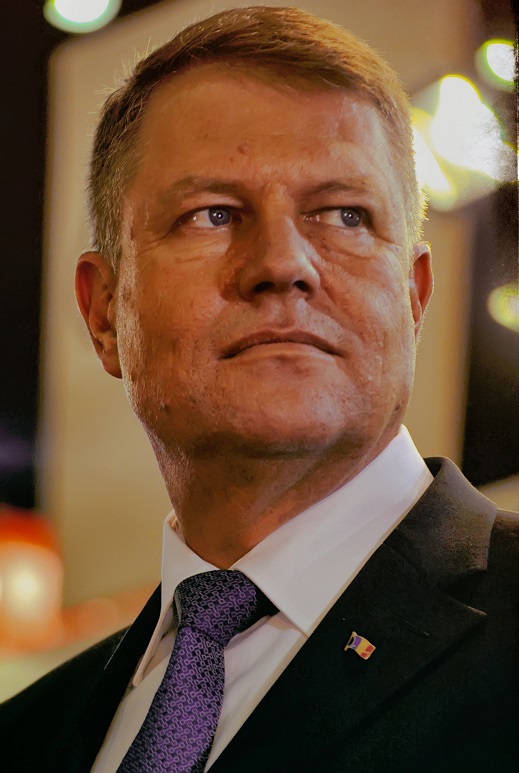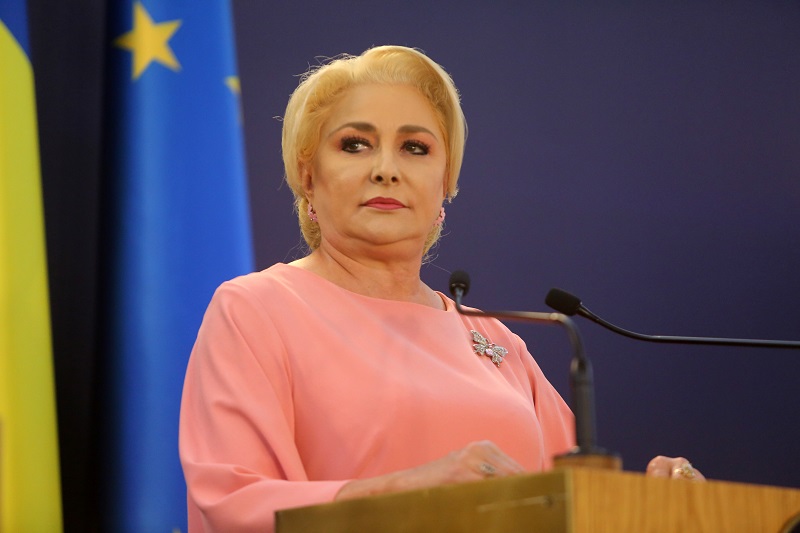A Brexit deadline in March, European Parliament elections in May, managing the current agenda for the development of the legislative framework – just a few of the challenges that Romania faces during its six months charged with the Presidency of the Council of the European Union.
In January 2019, Romania will for the first time take over the Presidency of the Council of the European Union – one of the main European institutions in Brussels, with important legislative and executive powers. For half a year, Romania will be at the center of European decision-making, playing an important role in spearheading efforts to develop and consolidate the European project and strengthen the cooperation of member states.
The rotating Presidency of the Council of the EU represents an opportunity for the holder to reaffirm European commitment and contribute directly to the evolution of the bloc. As this involves the organization of numerous high-level events, the state whose turn it is enjoys good external visibility. This can be leveraged for economic purposes, commercial or investment, tourism and cultural promotion.
In addition, national efforts at the helm of the EC Presidency have long-term effects through the top-level contact with national political leadership, long-term consolidation of the public administration and the visibility afforded to the country as it hosts elite European political and technical meetings.
“Holding the EU Presidency will be a first for our country and an opportunity to demonstrate our capacity to fulfill such an important task through good planning and coordination at national level as well as a sustained dialogue with the EU institutions and the member states of the European Union,” said Ministry of Foreign Affairs (MAE) officials.
Romania’s mandate is marked by two important aspects: the holding of this role for the first time and elections for the European Parliament.
“The assumption of the Presidency […] requires an exceptional effort to consolidate a national vision on the future of the European Union and to increase the administrative capacity needed to exercise this mandate,” says the MAE. “The Presidency of Romania must act as an honest broker, responsible for advancing the Council’s negotiations on EU legislation, ensuring the continuity of the EU agenda and good cooperation between the member states and European institutions.”
Three missions
Romania’s first task is to plan and conduct meetings within the various Council configurations (with the exception of the Foreign Affairs Council) and its working groups. The Presidency means, first and foremost, the duty to promote, in the meetings that Romania will be holding in Brussels, European interests by ensuring a proper bargaining framework.
The efforts will mainly focus on presenting compromise proposals, capable of leading to the adoption of common positions of member states. The presiding country should also act as a facilitator, being responsible for advancing the work of the Council on European legislation, ensuring the continuity of the EU agenda, well-organized legislative processes and cooperation between member states.
The second mission is to represent the Council in relations with the other Union institutions, in particular the European Commission and the European Parliament. In its work, the Presidency cooperates closely with the President of the European Council and with the High Representative of the Union for Foreign Affairs and Security Policy.
The third mission is to represent the EU in dialogue with external partners through the temporary replacement of the High Representative in situations where the latter cannot participate.
The concrete obligations of the role translate into providing the necessary resources for the holding of ministerial meetings in Brussels, at ambassadorial level and over 150 working groups at Council level. In this format, 200-300 legislative dossiers are negotiated during over 1,500 formal and informal meetings.
For practical purposes, the Presidencies are grouped in a trio, which provides a coherent overall framework for the work of the Council for an uninterrupted period of 18 months.
Recent presidencies have evolved in a complex European and international context, with typically three situations:
1) management of the current agenda for the development of the legislative framework;
2) managing responses to current / known crises (financial system, migration, etc);
3) managing responses to unknown crises, difficult to predict at this time.
The three-country mandate
The member states serving as president work in groups of three, called trios, in a system introduced by the Treaty of Lisbon in 2009. The trio sets long-term goals and prepares a common agenda, determining the topics and major issues to be addressed by the Council over 18 months.
Based on this program, each of the three countries prepares its own, more detailed, program for the six months of its mandate. Romania, Finland and Croatia will work together to establish long-term objectives and to prepare a common agenda for 1 January 2019 to 30 June 2020. The three countries’ program includes an introductory section defining the framework for action, the mission and the contexts of the three presidencies. The thematic sections of the document were built around the structure of the Union’s Strategic Agenda in Times of Change, agreed at the European Council meeting on 27 June 2014, presenting the common objectives agreed by the three presidencies for January 2019 – June 2020, on the following five priority areas: jobs, growth and competitiveness; empowering and protecting citizens; energy and climate policies; freedom, security and justice; strengthening the role of the EU as a global actor.
The MAE signed the program at the General Affairs Council in Brussels at the beginning of December. According to the custom, the Delegate Minister for European Affairs George Ciamba presented the main elements of the EU Council’s Joint Working Program for the next 18 months on behalf of the presidents of Romania, Finland and Croatia.

“There are three main objectives for the presidency trio: the maintenance of European unity and the consolidation of our European project, essential in the context of the Brexit process and of the elections for European Parliament; respecting agreed political priorities at European level; and effective communication on the future of Europe,” said Ciamba.
The delegate minister expressed Romania’s commitment, as the first presidency of the current trio, to ensure an easy transition from the Estonia-Bulgaria-Austria trio and to take all necessary steps to advance the European agenda, and the support of member states and European institutions in this regard.
Klaus Iohannis: Romania is ready
Romania is prepared to hold the presidency, assured President Klaus Iohannis, speaking in Vienna at the Europe-Africa High Level Forum.
“We are ready and we will show that we can have a good presidency,” said Iohannis. “This forum is extremely important and comes at the right time, as the Austrian Presidency ends and we are already entering the Romanian Presidency. The relationship between Europe and Africa is growing and we want to transform it from a relationship in which Europe has provided development aid into a relationship that runs between equal partners willing to cooperate and develop together,” said Iohannis.
At the European Meeting in Brussels, he also highlighted the importance of the Cohesion Policy and the Common Agricultural Policy in relation to the EU’s new budget.
“In the debate on the future multiannual budget of the Union, the President of Romania expressed his thanks for the efforts made by the Austrian Presidency in this dossier, underlining that as a state that will take over the presidency of the Council of the EU on 1 January 2019, our country will act as honest broker, and will continue the same sustained pace of talks with a view to reaching progress in negotiations,” commented a spokesperson for the president.
Iohannis welcomed the establishment as a temporary benchmark of autumn 2019 for an agreement at the level of the European Council, saying that this commitment would generate an ambitious pace of negotiations, including during Romania’s presidency.
“From the point of view of the priority objectives for our country, as a member state, in relation to the new budget, the President of Romania pointed out the importance of the Cohesion Policy and Common Agricultural Policy, as also supported by other member states. Klaus Iohannis stressed the importance of a realistic approach in future discussions, namely the need to equally accommodate the new priorities and challenges of the Union through this new budget,” added officials.
Romania will also take over the responsibility for managing the internal dimension of migration, and will continue to work towards identifying solutions.
As far as the Union’s external relations are concerned, European leaders discussed themes related to the EU Summit – League of Arab States to be held on 24 and 25 February.
At the same time, members of the European Council approached recent developments in the Azov Sea and the Kerch Strait, as Russia uses its military force against Ukraine, expressing “deep concern over the tensions in the region”.
“The President of Romania reaffirmed the commitment and support of our country to the sovereignty and territorial integrity of Ukraine, within its internationally recognized borders,” said officials.
The theme of climate change was also addressed in the context of the recent presentation by the European Commission of the proposed strategy in this area, entitled A Clean Planet for All. Debates on this issue will continue during Romania’s tenure.
On the security and defense front, the European Council welcomed progress, including the implementation of PESCO, strengthening military mobility and negotiations on the European Defense Fund, and endorsing the PSAC Civil Compact. President Iohannis welcomed the adoption of the Compact, highlighting the added value of the EU in the field of civilian crisis management, a spokesperson for the presidential administration said.
European leaders also exchanged views on the outcome of the dialogue and consultations with citizens of member states, based on the report prepared by the Austrian Presidency in co-operation with Romania as future holder of the rotating presidency.
“The President of Romania welcomed the results of the citizens’ consultations on the future of the Union, emphasizing that our country has supported this initiative from the outset, very useful in shaping the expectations of European citizens in the context of reflection on the future of the EU and in view of the informal Sibiu Summit of May 2019,” said officials.
At the larger Euro Summit, European leaders continued discussions on deepening the Economic and Monetary Union (EMU). Iohannis welcomed efforts to strengthen the EMU and reaffirmed his country’s support for this goal.
As for Brexit, European leaders agreed that the UK and EU withdrawal agreement cannot be reopened. President Iohannis fully supported the EU 27 approach and indicated that Romania aims to start discussions on future EU-UK relations as soon as possible in its tenure.
Viorica Dancila: Four pillars for the mandate
For the prime minister, Viorica Dancila, the priorities of Romania’s Presidency are organized in four pillars: Europe of convergence, Europe of safety, Europe – global actor and Europe of common values. She added that the first pillar – Europe of convergence – is based on “growth, cohesion, competitiveness, connectivity”.
“Convergence and cohesion to ensure sustainable and equitable development for all European citizens are essential for promoting a united Europe and for increasing the EU’s global competitiveness. These must be milestones of action at European level, while at the same time reflecting Romania’s interests as an EU member state. The decisions on the future of European policies must be reflected in the financing priorities of the Union. As such, the Romanian Presidency of the Council of the EU will contribute to projecting the next Multiannual Financial Framework post-2020 in view of reaching the targets in the next seven years so as to ensure the balance between policies generating growth and convergence in the community space,” said Dancila.

According to her, Romania’s holding of the presidency aims to “advance economic, financial and fiscal work in order to stimulate growth and investment and support structural reforms” and to contribute to “the strengthening of the EMU.”
On the same theme of convergence, she continued, the Romanian Presidency is interested in the social dimension through the implementation of the European Pillar of Social Rights. Dancila added that another direction is “the promotion of research and innovation” and, first of all, “digitization and connectivity as key factors in increasing the competitiveness of European industry”.
“The digitization of European industry will be a first priority national topic to be promoted at EU level. We will stimulate the diversification of the current industrial base in the EU by promoting digitization and implementing artificial intelligence in industrial processes,” she said.
The prime minister noted that another priority is connectivity.
“Ensuring real convergence (…) depends directly on making connections of all kinds, especially in less developed areas. Connecting these regions to the rest of Europe in all possible forms through transport, energy or digital networks is one of the most secure and most efficient ways of development. Connectivity ensures the functional circulation flows of commodities, natural resources, energy and human resources, essential for economic development,” said the PM.
Dancila also expanded on another pillar – Europe of safety.
“With regard to internal security, we will focus on increasing cooperation and inter-operability at European level between specific national systems and structures. We are mainly interested in protecting citizens, companies and public institutions in the online space and increasing the Union’s resilience to cyber attacks. Cybersecurity can no longer be considered optional, so any project concerning the information society must take into account the cyber-security component,” the premier underlined. She also raised another important topic on the European agenda – migration. “It is an extremely difficult issue that has failed to bring together a unitary position of the member states, and we are therefore planning to formulate new solutions that guarantee efficient and sustainable management. We are particularly interested in strengthening the external borders of the EU, including by strengthening the operational capability of the European Border and Coast Guard Agency. It is also important in our view to promote cooperation with the countries of origin and transit and I am convinced that the most effective way to address the issue of migration is to combat its deep root causes, the source of this phenomenon,” said Dancila.


:quality(80)/business-review.eu/wp-content/uploads/2019/01/eu-presidency-e1546408527734.jpg)

:quality(80)/business-review.eu/wp-content/uploads/2024/07/vodafone-RO.jpg)



:quality(80)/business-review.eu/wp-content/uploads/2024/06/22C0420_006.jpg)

:quality(80)/business-review.eu/wp-content/uploads/2024/06/COVER-1-4.jpg)



:quality(80)/business-review.eu/wp-content/uploads/2024/06/br-june-2.jpg)
:quality(50)/business-review.eu/wp-content/uploads/2024/07/BeFunky-collage-37-scaled.jpg)
:quality(50)/business-review.eu/wp-content/uploads/2024/07/04_ThinkPad_T14s_6_Business_Coworking.jpg)
:quality(50)/business-review.eu/wp-content/uploads/2024/07/Iulia-Surugiu-scaled.jpg)